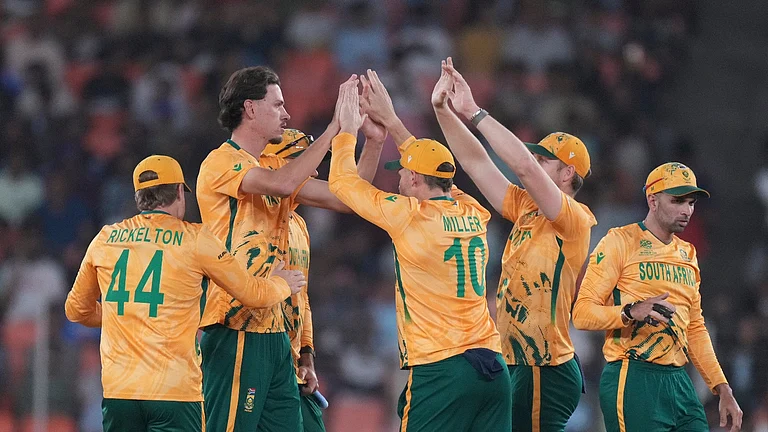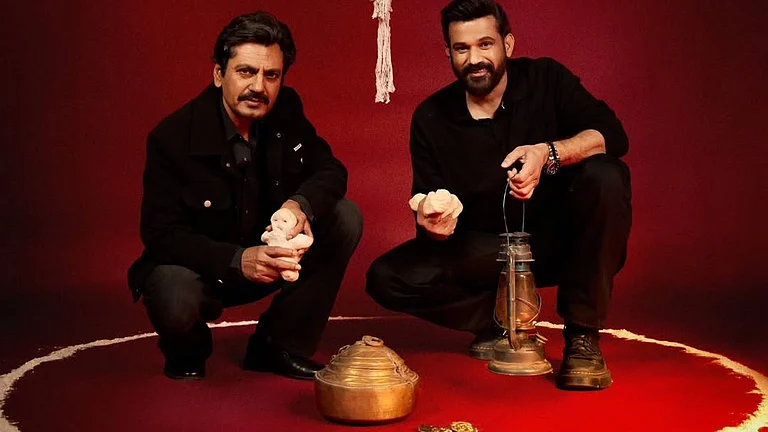Jharkhand Chief Minister Hemant Soren in conversation with Chinki Sinha. The chief minister organised a two-day Tribal (indigenous) Festival in Ranchi recently to celebrate indigenous identity and also to show Jharkhand Mukti Morcha’s assertion of tribal rights
What does tribal identity mean to you as the ‘son of this soil (Jharkhand)’?
The search for the tribal identity is still going on. The origin and progress of the state have been an important part of this tribal identity. It has been a long struggle for this identity—an identity of their existence. Jharkhand was separated from Bihar many years ago. Even when the tribals were a part of undivided Bihar, they never got the recognition they deserved. This indigenous festival defines them. Since the time our government has come to power, we have been celebrating this festival. As compared to last year, this year’s event has been grand. We cannot let a population of 13 crore tribals—as compared to the total population of 125 crore—vanish. Till the time we are in power, we will never let this happen.
You passed the Sarna Code Bill in 2019 and it has been lying with the Union government. What is your take on this Bill and how do you think this will help in giving an identity to the Sarna people, in the form of a religion code and a separate column in the 2021 census? Also, with regard to the Manipur incident, you have written a letter to the President demanding punitive measures.
This 13 crore population definitely has a place among the 125 crore population. History is witness to the fact that tribals always had a place and identity of their own. We have to understand as to whether they will be assimilated within the 125 crore population or would they be able to enjoy an identity of their own? There are certain sections of the society whose population is less than that of the tribal population. However, they too have their own identity. The tribals of our state have been very vocal and have raised their voice by passing the Sarna Code Bill. Jharkhand has been the only state in the country to do this. Though the Bill is pending for the Centre’s approval, the tribals are ready to fight a long battle to get this passed.
Your grandfather has been a teacher who fought against the British and the mahajans (moneylenders). Your father has been an activist and a popular political leader. How did he influence you in terms of political ideology? The tribals have been given different nomenclatures now. How have these influenced and shaped your thoughts?
People fail to recognise that the tribals have their unique identities. They are referred as ‘vanvasi’ (forest dwellers) or ‘janjati’ and some other names. People are oblivious to their identity. It is strange that both in the Centre as well as at the level, there is a Tribal Welfare Department. The contradictory opinion on recognising the tribals is a matter of concern. The name of the department should be changed to ‘Vanvasi’ Welfare Department. During the inauguration ceremony of this festival, a Sanathali (Santhal Pargana) woman had given a speech in which she had mentioned about the legends—Birsa Munda, Sidhu Kanu, Nirmal Mahato and others. This speaks volumes about our rich past and the fight our ancestors had fought. The tribals would have never imagined that their children would go abroad and study one day. It is on account of these struggles that the tribals are found in all walks of life. We have been the first state to present the religion code Bill at the Centre. For the first time in Jharkhand, we are sending 100 tribal and Dalit children for foreign education with full scholarship. The thought process of a person influences one’s decision. There have been many decisions related to the tribals, which could have been taken much before the formation of the state. However, it is an irony that the history of the separation of Bihar is no less than the history of the separation of the nation.
How have you been navigating on matters related to development, especially tribal politics along with their survival and identity?
Jharkhand has been providing more than 42 per cent of the minerals required in the country. There is no mineral in the world that is not found in our state. Not only iron ore and coal, but also gold, silver and uranium are found here. There are many organisations working on these mineral resources since ages. The aboriginals and tribals were displaced without any appropriate compensation or rehabilitation in the name of economic growth. Their condition has not improved. We tried to understand the reasons for their unemployment, illiteracy and their backwardness in spite of the richness of the state. We realised that this process of ill-treatment of the tribals have been going on in a very planned and systematic manner. There have been several stories of tribals being assaulted and exploited from across the country. The tribals of Manipur, who had migrated with the Britishers long ago, came back to our state after the recent incidents took place in Manipur. We have given shelter to them. Whenever any sad incident takes place with tribals of a particular state, the tribals belonging to other parts of the country are least bothered. This is tragic. Through this indigenous festival we have tried to connect the tribals across the country by strengthening the common roots. None of the governments before us had devised a proper pension scheme for the disabled, old age (social security) and widowed tribals. We have modified the pension schemes. During the pandemic, we had arranged for planes, trains and buses to bring the stranded tribals to their homeland. The state has immense possibilities that need to be tapped. We have been working towards changing the condition of our people. This will take time. but the results will be visible in some time.
How do you plan to find a balance between development and climate change, land, forest and environmental issues for the tribals?
In the recent times, we have been observing so many workshops being organised at the national and international levels on climate change and global warming. But the situation remains the same. Some decision-makers come up with policies for environmental protection, which, in fact, worsens the climate, instead of getting better. The tribals worship their land and forest, but the new policies are trying to displace them. So many changes have been brought about in the Forest Rights Act that nothing would be left for them. We have taken out a special drive for the people living in the urban areas wherein if they plant a tree, they would get five units of electricity for free. There is an urgent need to revisit the definition of urbanisation.
(Translated by Kaveri Mishra)


























